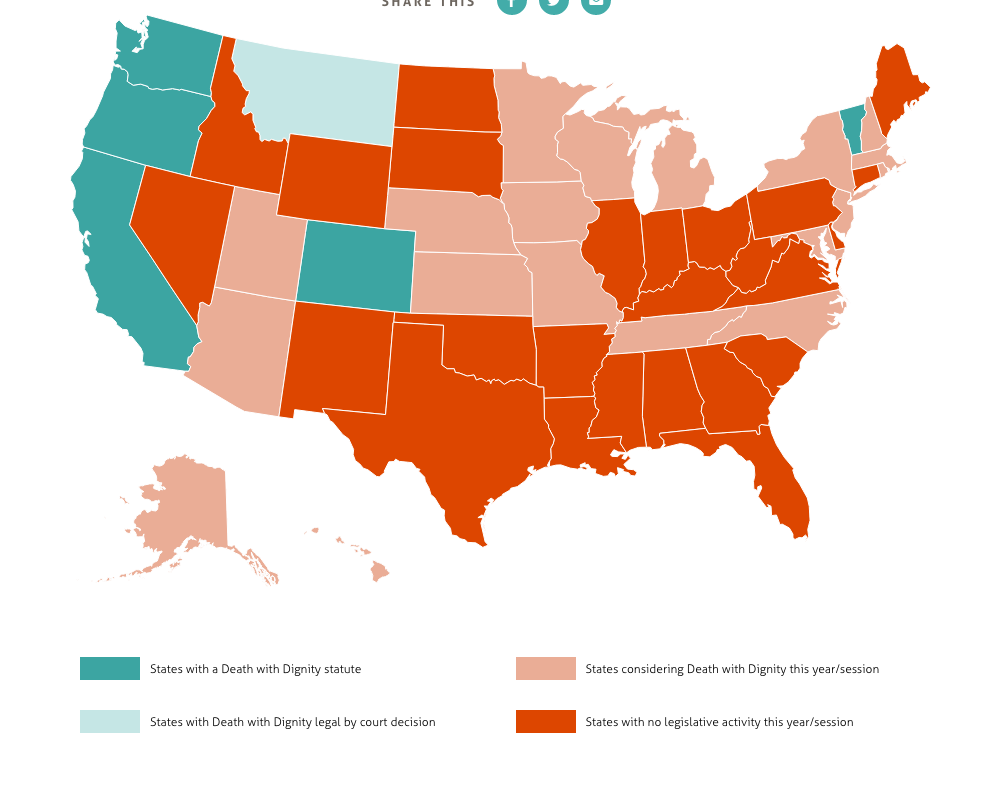South Africa’s former Anglican archbishop and Nobel Peace Prize laureate, Desmond Tutu, recently celebrated his 85th birthday and had an interesting message: Legalize the option of a physician-assisted death.
Although he has formally retired from public life, Tutu is still considered by many to represent the moral conscience of South Africa for his fight against apartheid. Coming from a religious elder, many were shocked by Tutu’s announcement that he wants the option to end his life when he sees fit.
Living with prostate cancer for decades and following a series of hospital visits in recent years, his call-to-action is that of legalizing physician-assisted death across the globe. Speaking in a video supporting advocacy groups for these death-with-dignity laws, Tutu eloquently expresses his intentions and outlines his stance on what he considers to be a human right:
“I pray that politicians, lawmakers, and religious leaders have the courage to support the choices terminally ill citizens make in departing Mother Earth with dignity and love.”
Currently, physician-assisted death options are illegal in South Africa and most of the United States. Although the idea seems completely alien to many, even offensive to some, the push for laws allowing citizens to “die with dignity” is ongoing.
Right now, California, Oregon, Washington, Vermont, and Colorado all afford adults with terminal conditions the option of ending their lives under the supervision of a medical team. Montana currently allows the procedure via a court ruling, an option that several more states may be considering short of the full option.

A map showing the current states allowing physician-assisted death and those with legislation in the works. via Death With Dignity.org.
How Physician-Assisted Death Works
Under the supervision of at least two physicians, a mentally competent adult diagnosed with a terminal illness leading to death within six months and capable of making and communicating his or her own healthcare decisions can seek this option. The process requires two oral requests, a written request, waiting periods, and other requirements to ensure the decision is not made erroneously.
Once the proper requirements have been met, physicians will prescribe the correct dose of pentobarbital, secobarbital (Seconal) or a phenobarbital/choral hydrate/morphine sulfate mix if the procedure is to take place in Washington State. These substances will cause an efficient and painless passing, many opting to use the prescriptions in the comfort of their own homes. Public usage or use outside of the state which prescribed the dosage could be considered a crime.
Lifting the Stigma
Officially, the term preferred by the Death With Dignity movement is “physician-assisted death.” Other terms like assisted suicide, doctor-assisted suicide, and euthanasia are incorrect and may be used to mislead the public by those opposing a citizen’s right to die.
For people with terminal illnesses and no realistic chance of life without immense suffering, physician-assisted death represents a compassionate option that returns power to patients. Faced with a bleak prognosis, many families feel that limiting the pain of a loved one is much more humane than having them endure a prolonged process of dying.
Those in opposition of assisted-death often believe these laws devalue human life. Inaccurate medical prognoses are cited by which people had come to believe they would die in months, and then went on to live for several years longer. Additionally, people who are terminally ill often suffer from depression or other mental illnesses that regularly go overlooked.
Yet, it comes down to providing this option as a way to limit suffering, allowing competent patients to make decisions over their own lives in their preferred setting. As with many issues of compassion, it helps to put yourself in the place of someone making this decision.
What would you do personally or prefer for a loved one? Even if you wouldn’t elect for a physician-assisted death, it’s important that this option is available for those who see the procedure as a positive decision.
Do you or someone you know have experience with this issue? Let us know in the comments below.





